31 Benefits Of Onions: Health, Skin & Hair Advantages
Well, look at that – this yummy vegetable is also good for your health!
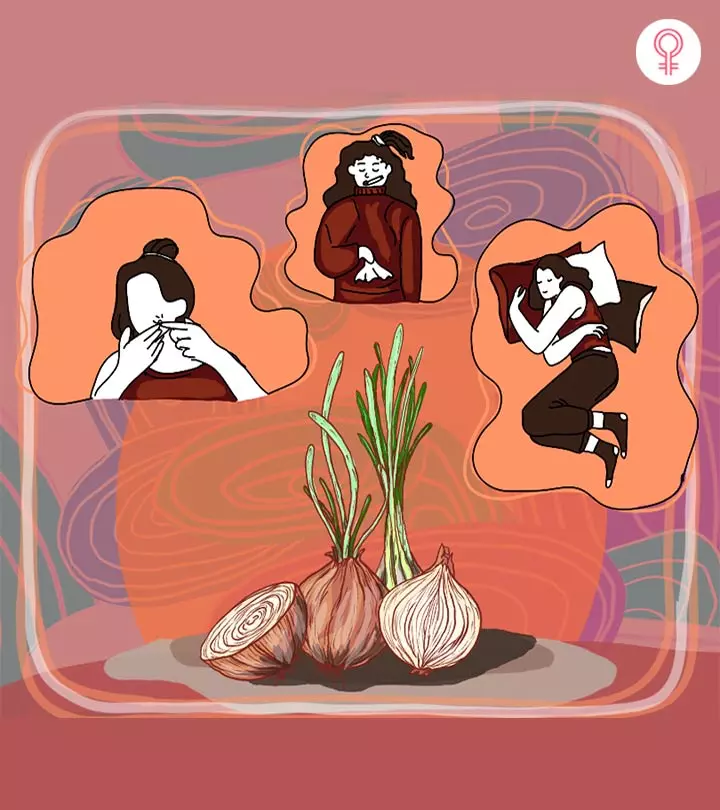
Image: StyleCraze Design Team
The benefits of onions extend well beyond their texture and taste. It is known for its strong flavor and sharp, pungent taste. Onions are loaded with vitamins B6 and C, folate, iron, and potassium. They contain allium and allyl disulfide. These compounds may help in cancer prevention and associated risks, maintain a healthy blood sugar level, soothe inflammation, and treat infections.

This article discusses the health benefits of onions, their nutritional profile, recipes, and any potential side effects. Take a look.
 Know Your Ingredient: Onion
Know Your Ingredient: OnionWhat Is It?
A vegetable from the genus Allium that has bluish-green leaves, and a bulb underground.
What Are Its Benefits?
It helps lower blood pressure levels and the quercetin content reduces inflammation; it also has antioxidant, antiseptic, and antibacterial properties.
Who Can Consume It?
Individuals who suffer from heart diseases such as high blood pressure and cholesterol levels, digestive issues like constipation, osteoporosis, inflammations, allergies, and poor immune health can benefit from consuming onions.
How Often?
It can be consumed daily and it is recommended to have at least 100gms every day.
Caution
It is known to cause migraine, gastric burning, and skin irritation if you’re allergic.
In This Article
What Are Onions?
Also known as bulb onions or common onions, they are vegetables and the most widely cultivated species of the genus Allium. They are also known as Pyaz or Kanda or Dungri (Hindi), Nirulli/Ullipayalu/Yerra Gaddalu (Telugu), Vaengayam (Tamil), Savala (Malayalam), Ulligadde/Erulli/Neeruli (Kannada), Pyajj/Piyaz (Bengali), Dungri/Kanda (Gujarati), and Kandaa (Marathi). Other related vegetables include garlic, leeks, chives, shallots, and Chinese onions. The onion plant has bluish-green leaves, and the bulb at the base begins to swell after a certain period.
Onions are cultivated and consumed across the world. They are usually served cooked. They can also be eaten raw and are used in pickles and chutneys. The onion has a strong taste and a sharp, pungent flavor. Though it is a temperate crop, it can be grown under a wide range of climatic conditions (temperate, tropical, and subtropical).
The bulb onion, as we discussed, is nothing but the short stem with fleshy leaves. It acts as a food reserve that helps the plant survive during harsh weather conditions.
That’s quite intriguing, isn’t it? But onions have a history too.
Key Takeaways
- Onions may help improve cardiovascular health.
- They may reduce the risk of inflammation and certain types of cancers.
- Onions are beneficial in managing cholesterol levels and obesity.
- They may help improve blood glucose levels in type-2 diabetes.
- Overconsumption of onions may lead to heartburn, bloating, and low blood pressure.
What Is The History Of Onions?
The ancient origin of onions spans the western and eastern parts of Asia. There are numerous species of onions found the world over, which basically means they were cultivated across the world probably at the same time. Records suggest that onions started to be used in China way back in 5000 BC – more so because of the bulb’s durability to transport and store. Ancient Egyptians were known to revere the vegetable, considering its spherical shape and concentric rings a symbol of eternal life. In fact, onions were also used in ancient Egyptian burials.
The medical documents of Charaka Samhita (way back in the 6th century BC) mention onion as a medicinal plant. Even a Greek physician from the 1st century AD (Dioscorides) documented the vegetable’s medicinal uses. And it was the first European settlers who had taken onions to North America.
 Trivia
TriviaThat’s a bit of the history. But did you know that there are different types of onions?
What Are The Different Types Of Onions?
Onion is so widely used that any culinary dish from almost any part of the earth has the vegetable added to it
. No doubt there are several types of onions – but here, we talk about the most common ones.
Yellow onions – They have ivory white flesh that is surrounded by heavy brown skin. They have a strong and sulfur-like aroma.
Sweet onions – They have a lighter, less-opaque skin that surrounds a larger and slightly fatter body of the vegetable.
White onions – They have a papery white skin, and they are milder and sweeter than their yellow counterparts.
Red onions – They are mild and sweet enough to be eaten raw. The exterior skin and flesh are a deep magenta.
Shallots – They are smaller and brown-skinned and have purple flesh.
Green onions – They are the immature onions that haven’t yet formed a bulb.
Leeks – They are shaped like overgrown scallions (the long-necked onion with a small bulb) and are usually used in sauces and soups.
But why talk so much about onions? What is so wonderful about them? And the big question –
Are Onions Good For You?
You bet.
Whether it is raw onions or cooked onions, they are loaded with benefits. And you can eat them whenever you want – day or night. The vegetables are an excellent source of vitamins C and B6, folate, iron, and potassium. Onions are also rich in manganese that offers protection against cold and flu.
Allium and allyl disulphide, two phytochemicals in onions, are converted into allicin post ingestion. Allicin, as per certain studies, has properties to fight cancer and diabetes (1). It can also reduce the stiffness of blood vessels and lower blood pressure levels. Even the other onion types like chives, leeks, and shallots have similar benefits.
Onions also contain quercetin, another antioxidant that fights inflammation. More interestingly, cooking onions in soup doesn’t diminish their quercetin value but simply transfers the antioxidant from the vegetable to the soup broth.
And not just the vegetable, even the essential oil from onions has benefits. The oil has antiseptic and antibacterial properties.
Onions, when combined with garlic, could have greater benefits. The two, together, are known to be effective antidepressants, painkillers, anticoagulantsi Blood clot-preventing medications that can lower the risk of ailments like heart attack and stroke. , and anti-inflammatory.
And though onions may not induce weight loss directly, substituting them for high-calorie foods can make some contribution. Adding onion for weight loss can be a smart choice when aiming to create a calorie deficit, as they are low in calories but packed with nutrients.
So, this answers your question — are onions good for you? But hold on – there’s more. The benefits are many. But before we get there, let’s discuss another important question.
Is It Better To Eat Onions Raw Or Cooked?
Whether raw or cooked – onions are super healthy. However, when we talk about the benefits of eating raw onions, they might be slightly more as raw onions have higher levels of organic sulfur compounds. One study has found that the outer layers of onion flesh have the highest concentrations of flavonoids – hence, ensure you remove as little of this part as possible while peeling the vegetable (2).
Just like there are plenty of raw onion benefits, boiled onions are beneficial too. They serve as a good source of fiber and copper. Fiber helps keep digestive issues at bay while copper aids brain communication. Even pickled onions have most of the benefits onions provide. One point to be noted about pickled onions is – most brands contain additives and could be harmful.
All of what we spoke about, all of these onion health benefits, are because of the nutrients present in them. Which is what we will look at now.
What Is The Nutrition Profile Of Onions?
Onions are rich in sulfur, fibers, potassium, calcium, vitamin B, vitamin C and they are low in fat, cholesterol and sodium. Here is a detailed information about onion nutrition facts:
| Principle | Nutrient Value | Percentage of RDA |
|---|---|---|
| Energy | 40 Kcal | 2% |
| Carbohydrates | 9.34 g | 7% |
| Protein | 1.10 g | 2% |
| Total Fat | 0.10 g | 0.5% |
| Cholesterol | 0 mg | 0% |
| Dietary Fiber | 1.7 g | 4.5% |
| Vitamins | ||
| Folates | 19 µg | 5% |
| Niacin | 0.116 mg | 1% |
| Pantothenic acid | 0.123 mg | 2.5% |
| Pyridoxine | 0.120 mg | 9% |
| Riboflavin | 0.027 mg | 2% |
| Thiamin | 0.046 mg | 4% |
| Vitamin A | 2 IU | 0% |
| Vitamin C | 7.4 mg | 12% |
| Vitamin E | 0.02 mg | 0% |
| Electrolytes | ||
| Sodium | 4 mg | 0% |
| Potassium | 146 mg | 3% |
| Minerals | ||
| Calcium | 23 mg | 2% |
| Copper | 0.039 mg | 4% |
| Iron | 0.0.21 mg | 3% |
| Magnesium | 10 mg | 2.5% |
| Manganese | 0.129 mg | 5.5% |
| Phosphorus | 29 mg | 4% |
| Zinc | 0.17 mg | 1.5% |
| Phyto-nutrients | ||
| Carotene-beta | 1 µg | — |
| Cryptoxanthin-beta | 0 µg | — |
| Lutein-zeaxanthin | 4 µg | — |
One small onion contains about 28 calories and 7 grams of carbs. Onions are also rich in vitamins A, B6, B-complex, and C, as well as iron, folate, and potassium. They are excellent sources of sulfuric compounds, flavonoids, phytochemicals, and polyphenols.
So, what are onions good for? Let us head to the real deal.
What Are The Health Benefits Of Onions?
Allium and allyl disulphide, two phytochemical compounds in onions have been found to lower the risk of several types of cancer, assist in regulating blood sugar, reduce inflammation and heal infections. Here’s a quick look at the incredible onion benefits for health:
1. Fight Cancer
As per a study conducted by the University of Guelph, red onions are the most effective in destroying breast and colon cancer cells (3). These onions have high levels of quercetin and anthocyanin – two compounds that contribute to the red onion benefits. Onions activate the pathways that provoke the cancer cells to kill themselves. They make the environment unfavorable for cancer cells to communicate, and this inhibits their growth.
It was also found that people with the highest consumption of onions had the lowest cancer rates. A review published in Cancer Prevention Research (Phila) explored how garlic and onions may help reduce cancer risk. These Allium vegetables, which also include shallots, leeks, and chives, have been linked to a lower risk of gastrointestinal cancers in some studies. While direct clinical evidence may be limited, mechanistic studies suggest that their sulfur-containing compounds may help by reducing carcinogen activation, fighting harmful microbes, and modifying oxidative stress. These compounds seem to work at various stages of cancer development, influencing multiple biological processes. The review emphasizes the potential cancer-preventive benefits of garlic and onions while also noting areas where more research is needed (4). As a preventative measure, you can have your burgers garnished with red onions.
2. Improve Heart Health
The flavonoids in red onions can contribute to heart health (5). Onions are also rich in organosulfurs, which can help prevent heart disease. According to one Argentine study, intake of the organosulfur compounds found in onions can cut the risk of cardiovascular disease (6). Onions contain thiosulfinates that act as natural blood thinners and reduce the risk of heart attack and stroke.
The quercetin in onions also has the potential to fight heart disease. It offers both antioxidant and anti-inflammatory properties that promote heart health (7). Onions are also a part of the French Paradox – they are an important part of French cuisine and are thought to be responsible for the low incidences of heart disease among the French despite their high-calorie diet.
Onions can also improve cholesterol levels, and this ultimately benefits the heart. As per a report by the Cambridge University Press, the flavonoids in onions help lower the levels of LDL (the bad cholesterol) in obese people (8).
Onions also prevent the blood platelets from sticking each other, which can lead to clotting and eventually, heart attacks. They also can prevent high blood pressure, thereby averting heart danger. Another study on rabbits showed that onions could prevent atherosclerosisi The build-up of plaque in the artery walls that blocks blood flow, which can be caused due to diabetes or high blood pressure. . They achieve this by enhancing fibrinolytic (a process that results in the removal of small blood clots) activity (9).
3. Lower Blood Sugar Levels

One study has proven that onion extract can help lower blood sugar levels (10). The study was conducted on diabetic rats, and the results were encouraging. One of the sulfur compounds in onions (S-methylcysteine) and quercetin can have beneficial effects on blood sugar. However, it was found that onions exhibited the positive effect only when taken along with metformin, the antidiabetic drug.
In yet another study, polyphenols (especially the ones in onions) were found to play a role in glycemic control. A review published in Nutrients discusses how dietary polyphenols may help in managing Type 2 diabetes. Animal studies suggest that polyphenols can regulate blood sugar levels and improve insulin sensitivity, making them a potential dietary approach for diabetes prevention. These compounds may work by blocking carbohydrate-digesting enzymes, slowing glucose absorption, stimulating insulin secretion, and reducing liver glucose production. They might also enhance insulin-dependent glucose uptake, activate AMPK (a key metabolic regulator), influence gut bacteria, and reduce inflammation. However, results from human studies have been inconsistent, highlighting the need for more clinical research to confirm these benefits (11).
4. Promote Healthy Digestion
The digestive benefits of onions can be attributed to inulin, a fiber present in the vegetable. Inulin acts as a food source for the beneficial bacteria in the intestines. Consuming this fiber helps your body maintain good levels of the healthy bacteria. However, the thiosulfinates in onions can cause harm to these beneficial bacteria (as they have antibacterial properties). Hence, if you are sensitive to the antibacterial properties of onions, do consult your doctor.
Another soluble fiber in onions, oligofructose (which is a sub-group of inulin), was found to prevent and treat different types of diarrhea (12). And the phytochemicals in onions can cut the risk of gastric ulcers.
The natural prebiotics in onions can also help ease constipation (13). They are also believed to help treat stomach ache and stomach worms, though more research is warranted.
Onion is known to cause migraine and flatulence in some people (14). Consult your doctor if this happens.
5. Maintain Bone Health
Preliminary research suggests that onions can prevent age-related osteoporosis. According to Swiss researchers, a compound in white onions (called GPCS) can reduce bone loss to- Preliminary research suggests that onions can prevent age-related osteoporosis. A compound in white onions (called GPCS) can reduce bone loss (15). Though the study was conducted on rats, it does hold promise for humans.
Another study revealed that women who ate onions regularly had 5 percent more bone mass than those who ate less. A study published in Menopause suggests that frequent onion consumption may help increase bone density in perimenopausal and postmenopausal women. Researchers analyzed data from the National Health and Nutrition Examination Survey (NHANES) 2003-2004, examining bone density in non-Hispanic white women aged 50 and older. The findings showed that higher onion intake was linked to greater bone density, even after adjusting for factors like age, BMI, calcium intake, vitamin D levels, estrogen use, smoking, and exercise. Women who ate onions daily had 5% higher bone density than those who ate them less than once a month (P < 0.03). Additionally, frequent onion consumption was associated with a 20% lower risk of hip fractures, suggesting a potential protective effect against osteoporosis (16). Onion consumption was also found to have a beneficial effect on the bone density of women older than 50 years.
Quercetin in onions helps combat inflammation(17). Onion intake was also found to help treat joint pains.
6. Prevent Inflammation And Other Allergies
We have already seen quercetin (and other flavonoids) in onions can help prevent inflammation. Onions also treat allergies by preventing the cells from releasing histamine.
Cooking with onions can help open and drain your sinuses. And the antihistamine properties of quercetin can also aid in reducing nasal congestion (18). Even eating a raw onion at night can help relieve congestion – the sulfur-compounds in the onion can break down the mucous.
Onions also possess antibacterial properties. As per one study, onion extracts acted against Streptococcus mutans and Streptococcus sobrinus, the bacteria responsible for dental caries and other allergies (19). Onions also possess antibiotic effects that can accelerate wound healing (20).
7. Improve Immune System
Onions contain selenium that stimulates immune function. The mineral also prevents excessive immune response, which can have adverse effects. Immune cells deficient in selenium develop and reproduce inefficiently, and here’s where onions come into the picture. Such cells also have difficulty in producing the important proteins and transporting calcium.
Onions are also considered herbal medicine in Russia, where they are used to treat cold and flu (21).
We also want to talk about a popular remedy here – sleeping with onions underneath your feet, placing them in your socks. Does this have benefits? Certain sources say that it eradicates infection and hydrates your body. Doing so can also strengthen your immune system. The reason behind this could be that the feet contain the nerve endings of all the organs of the body. Placing onions beneath the feet transfers their beneficial properties to your interiors. However, there is no research on this – and we don’t know how far the information is true.
You can also make onion tea for treating colds. This tea gives you an immunity boost and helps prevent ailments. Making the tea is as simple as cutting an onion, boiling it in water, and drinking the juice. This acts as a quick remedy for your cold and other illnesses. You can also add other ingredients like ginger for taste.
Even onion-honey syrup works wonders for common cold symptoms. Just slice an onion and add it to a saucepan. To this, add half a cup of honey. Gently heat until the onions turn translucent and soft. Take a spoonful of this syrup every 3 to 4 hours. For prevention, you can take 1 or 2 spoonfuls during the flu season. You can also use white onion with honey for similar results.
The anti-inflammatory properties of onions can also help improve asthma. This effect can be attributed to quercetin (an average onion contains 50 mg of it).
8. Cure Ear Disorders
As per one report, though research is limited, most parents swear by onions to cure ear ailments. They insist that onion juice can work great to relieve earache. One way to do this is to heat up the onion, extract some of the juice, and pour a few drops into the infected ear. And this remedy, believe us, goes back to the 19th century.
All you need to do is place the onion in an oven at 450o F. Let it be for 15 minutes or until it becomes soft. Take out the onion – once it’s cool, cut it in half and squeeze the juice into a small bowl. You can strain the juice once, and using a medicinal dropper, pour a few drops of the juice into your infected ear (22).
An alternative is to place onion packs on the infected ear. Though the remedy is not scientifically proven, some people believe they might work (23).
9. Promote Respiratory Health
According to an American study, patients with respiratory issues like asthma and allergic rhinitis can benefit from certain fruits and vegetables, onions being one of them (24).
The anti-inflammatory properties of onions can also help soothe respiratory ailments. If you are suffering from a respiratory illness, you can simply include onions in your diet (in addition to your medication) for quicker relief (25). Include onions in your salads and other foods.
10. Improve Sleep

Onions contain prebiotics, which, as per a study, can improve sleep and even reduce stress. When the beneficial bacteria in the gut digest the prebiotic fiber, they multiply and improve gut health – and more importantly, release metabolic byproducts. These byproducts can influence brain function and induce sleep (26).
11. Enhance Eye Health
The sulfur in onions improves the health of the lens of the eye. It stimulates the production of a protein named glutathione, which acts as an antioxidant. Higher levels of glutathione mean a reduced risk of glaucoma, macular degeneration, and cataracts.
The selenium in onions supports the vitamin E in the eye (which protects the cells in the eye).
As per an Iranian study, onions can inhibit the growth of normal eye flora. This highlights the possibility of onions being a potential cure for common eye infections like conjunctivitis and blepharitis (27). In the study, onion juice was used as eye drops – which resulted in the benefits. You can try that too, but we recommend you consult your health care provider first.
Onion extracts can also aid in preventing the development of corneal haze (28).
12. Are Good For Oral Health
Onions contain thiosulfinates and thiosulfonates (the sulfur compounds) that help reduce bacteria that cause tooth decay. And eating them raw is best – as cooking might destroy some of these beneficial compounds.
The vegetable is also rich in vitamin C that can keep the teeth healthy (29). It is also believed that onions can relieve tooth pain. However, there is less research on this.
But one downside of onions is that they can cause bad breath (30). Hence, wash your mouth thoroughly after consuming onions – especially if you are heading to a social gathering.
13. Aid In Cholera Treatment
Onions were found to have an inhibitory effect against V. cholerae, the microbe responsible for cholera. This can be attributed to the antibacterial effects of the vegetable (31).
14. Prevent Blood Clots
Onions contain a compound called rutin, which can help prevent blood from clotting. In numerous mice studies, rutin was found to be the most potent anti-thrombotic compound (32). Clots occur in the arteries and veins – in arteries, the clots are platelet-rich while in veins they are fibrin-rich.
The rutin in onions helps block an enzyme (protein disulfide isomerase), which is released very quickly when blood clots form (33).
15. Give An Energy Boost
The fiber in onions slows digestion and keeps the energy levels stable. The inulin in the vegetable helps maintain your stamina levels.
16. Improve Sexual Health
Onions are one of the herbal medicines used in western Uganda for managing sexual impotence and erectile dysfunction (34). Even otherwise, the vegetable is known to have benefits for men. Taking onion juice with honey is known to increase fertility in men.
17. Enhance Brain Health
Research suggests that the antioxidants in onions bind with the harmful toxins in the brain and flush them out of the body. And the sulfur-containing compounds in onions can slow down age-related memory loss. The extracts of onions have been found to maintain the hippocampus. However, a part of these memory fighting properties might be lost upon cooking. Hence, try your best to eat the fruit raw.
Another sulfur-compound in onions, named di-n-propyl trisulfide, improves memory impairment (35). Onions are also believed to treat dizziness, epilepsyi A condition characterized by disturbed nerve cell activity in the brain, due to trauma or stroke, which can lead to seizures. , and vertigoi A feeling of dizziness caused by spinning or moving too fast, which makes the individual find difficulty in balancing. – though we have limited research on this.
18. Help Cure Fever

Onion can be included as a food ingredient to cure fever (36). It can also prevent or treat nose bleeding, given its natural fumes, which can help the blood clot (externally).
19. Reduce Oxidative Stress
According to a Chinese study, taking onion juice can help modulate oxidative stress (37). In yet another study, it was found that onions can also lower diabetes-induced oxidative stress. The quercetin in the vegetable can prevent diseases related to oxidative stress. It also protects the DNA against damage from oxidative stress (38).
Another Argentine study attributes the ability of onions to reduce oxidative stress to their anti-inflammatory and antioxidant properties (39).
20. Ease Menopause Symptoms
Onions help during menopause as they support the liver and get rid of the waste hormones (40). Taking enough calcium is also imperative during this period. Onions contain calcium too and can help in this regard (41).
What Are The Benefits Of Onions For Skin?
This is where we see the benefits of an onion face mask. Check out different ways of using onion for skin care.
21. Make Skin Glow
Onions are packed with vitamins A, C, and E – all of which contribute to skin health. They protect the skin from premature aging that is caused by free radicals. And since the vegetable is a powerful antiseptic, it can also shield the skin from bacteria that cause issues. And by the way, research says that vitamin C is important for imparting a glow to the skin.
This onion face mask does the trick – all you need are 2 tablespoons of gram flour, 1 1/2 tablespoons of onion juice (freshly extracted), 1/2 teaspoon of milk, and a pinch of nutmeg.
Mix all the ingredients till you get a thick paste. You can add extra milk if the pack becomes too thick. And in case the smell of onions is too much to take, you can add a few drops of lavender essential oil to the pack. Cleanse your face, and apply the mask evenly to your face and neck. After the mask dries (which might take about 20 minutes), remove it by gently massaging it off the skin with milk.
This mask not only adds glow to your skin but also exfoliates it.
22. Fight The Effects Of Aging
Onions possess enormous anti-aging benefits. The antioxidant vitamins A, C, and E fight against the damage caused by the harmful UV rays as well as prevent free radical damage that is responsible for causing premature aging of our skin. Onion is one of the richest sources of quercetin, the most powerful antioxidant that can keep your skin wrinkle-free. Vitamins and sulfur, on the other hand, protect your skin and keep it soft and supple. The anti-aging qualities of onion can be attributed to the presence of sulfur-rich phytochemicals.
Massaging your skin with fresh onion juice helps increase blood circulation and improves the overall appearance of your skin by imparting a more youthful and radiant appearance to it.
23. Treat Acne

The antimicrobial, antibacterial, and anti-inflammatory qualities of onion can work wonders on your skin. It is a powerful antiseptic that protects your skin from acne-causing bacteria and other skin infections. Onions can be used in the treatment of acne and pimples.
For this purpose, you can mix 1 tablespoon of onion juice or extract with 1 tablespoon of olive oil and apply it to your face. Leave it on for 20 minutes and then wash it off. Apart from topical application, the regular consumption of onion can also give you miraculous results in the case of acne. Certain individuals claim that rubbing onions on your face can give good results. You can probably give it a try and check – there is no harm anyway.
And for treating acne scars, you can use onion extract. Or you can look for creams that have onion extract as one of the ingredients.
24. Remove Dark Spots And Treat Skin Pigmentation
Onion juice is excellent for getting rid of dark spots and pigmentation. The rich variety of phytonutrients and antioxidants in onion nourish your skin while removing the skin impurities.
You can prepare an onion face mask by mixing equal quantities of onion juice and fresh yogurt. You can also add a few drops of any essential oil for a pleasant aroma. Massage your face with this mixture, using gentle circular movements for 10 to 15 minutes. This should be done daily for best results.
25. Treat Stings And Bites
Onions can be used to soothe stings and bug bites. All you need to do is place an onion slice on your sting or bite. The anti-inflammatory properties of onion help in reducing the burn, itchiness, and swelling caused by the bites of insects and bugs.
26. Help Get Rid Of Moles
You can use onion juice to get rid of moles too. The acidity of the onion juice and the chemicals in it can heal moles as well. All you have to do is dab some fresh onion juice on your mole. Allow it to absorb the juice. In most cases, the treatment was found to remove the mole in a month.
But since each mole is different, do talk to your doctor if you don’t see the right results.
What Are The Benefits Of Onions For Hair
Here, we talk about onion hair packs. But hey, even consuming raw onions can have benefits for your hair – they can improve hair health and appearance. Here’s a quick glimpse at their incredible advantages of onion for hair.
27. Promote Hair Growth

The number one reason onion juice is good for hair growth is it contains sulfur, which is also found in amino acids. And keratin (an important protein) is also sulfur-rich and is required for strong hair. When applied to the scalp, onion juice provides this extra sulfur for stronger and thicker hair. This sulfur can also stimulate collagen production – which, in turn, aids in the production of healthy skin cells and hair growth (by default, treating hair thinning too).
Applying onion juice to hair and scalp can increase blood supply to the hair follicles, enhancing hair growth. It can also give you voluminous hair. In one study, participants who washed their hair with onion juice had experienced more hair growth than those who hadn’t (42). However, more research is required. But then, using onion juice on your hair is not harmful.
You can simply massage fresh onion juice into your scalp and hair. Leave it on for 15 minutes, post which you can wash as usual using a shampoo.
Doro Cubillo, a vlogger, spoke about her experience of using onion juice for hair loss in her video. She said, “The amount of hair that I lost during application and after showering is quite small compared to the previous days (i).”
28. Help Treat Dandruff
Onion juice can work as a great dandruff healer
. It can kill the bacteria that promotes the growth of dandruff. And an onion hair pack does the job pretty well.
You need onion juice and fenugreek seeds. Take 3 tablespoons of fenugreek seeds and soak them in water overnight. The next day, grind them into a fine paste, and to this, add 2 tablespoons of fresh onion juice. Mix well and apply the pack to your scalp. Leave it on for 30 minutes, post which you can rinse with lukewarm water.
Apart from dandruff, onions can help treat other scalp infections as well. Use this remedy for treating scalp infections and enhancing scalp health. This remedy also acts as a wonderful hair conditioner.
Even onion paste can do the job. Crush half an onion and make a paste (after adding water). Apply to the scalp. Leave it on for about 20 minutes and rinse with water.
In case onions make you uncomfortable, you can replace them with garlic. Simply mix garlic juice (from crushed garlic cloves) with coconut oil and apply to your hair and massage as usual. You can shampoo later. Garlic also works great for hair care.
29. Help Reverse Gray Hair
Though there is no research on this, certain proponents claim its efficacy. Just add 5 onions to a liter of water and boil for about 10 minutes. Strain the mixture after it cools down. Apply it to the scalp along with the shampoo. If the smell of onions doesn’t bother you, you can also wash your hair the next morning.
You will first see the sheen of your hair improving in 2 months. The graying also might start getting reversed.
30. Maintain Hair Color
You can apply onion juice on your hair to impart a nice coppery shade as well as to make your hair glossy. However, if you wish to maintain the natural color of your hair, you can blend an onion with an adequate amount of mustard oil and apply it to your hair. The mustard oil will suppress the color-lightening effect of onion.
31. Eliminate Head Lice
The sulfur in onions helps eliminate head lice. You just have to grind 4 to 5 onions to make a paste. Transfer this paste to a sieve and press with a spoon to extract the juice. Now, massage your head with juice, post which you can cover your head with a shower cap. Leave it on for about 2 hours. Shampoo your hair with lukewarm water. Dry your hair, and using a nit comb, remove the head lice.
You can repeat the treatment daily for 3 consecutive days. After this, you can do it once a week for 2 months.
Onions have several advantages in addition to these notable ones.
Julia Watson, a fitness trainer and nutritionist says, “In addition to their overall health benefits, onions are also good for men’s reproductive health. Eating onions regularly has been shown to improve sperm quality and increase sperm count.”
Valeria Dolbel, a nutritionist, adds, “Onions are natural antioxidants used as a traditional medicine to improve sperm quality and enhance fertility. The extract of onion protects sperm from DNA damage.”
Yelena Wheeler, MPH, RDN, says, “They contain antioxidants that reduce inflammation of all organs, including the liver.”
According to Amber Dixon, a dietitian, “Onions contain a compound called quercetin, which is known to prevent the oxidation of lipids and cholesterol, thereby preventing fatty deposits from forming in the liver. Quercetin also helps to protect against inflammation and damage to the liver tissue.”
Blanca Garcia, Registered Dietitian Nutritionist, says, “Kidneys are made up of cells, and tissues and do need nutrients to make the kidneys and help with functions. The onions help provide a small number of various nutrients that can help keep the kidneys healthy and repair themselves.” Valeria adds, “As onions are rich in vitamin C, calcium, and phosphorus, they can also benefit people suffering from reduced kidney function. It has the antioxidant quercetin that prevents free radicals from causing kidney damage and helps detoxify.”
Barbara Kovalenko, a nutritionist, concludes, “However, if you have no issues with it, you can eat it since onion contains prostaglandins, which naturally lower blood viscosity, help lower blood pressure, and slow down kidney disease progression. Please do not consume onion in large amounts, as it may be harmful if taken in large quantities.”
Now we know what are the benefits of eating onions. Ah! That’s the list of ways onions can make your life better. But for that to happen, one must first know how to pick the right onions. And how to store them.
How To Select And Store Onions
Selection
Both dry and green onions are available all the year round. While buying onions, choose the ones that are clean, well-shaped, with no opening at the neck. Their necks should be tightly closed and should not have a thick woody center. They should be firm with crisp, dry, bright, and shiny outer skin with a crackly feel.
The base should be whitish, measuring about 2 to 3 inches. Avoid the ones with soft spots and damp and moldy patches as this is an indication of inferior quality. Sprouting onions should be avoided as this indicates age and poor storage.
However, if sweet onions have sprouted in your pantry, you can use the green sprouts as a substitute for scallions. There should not be dark powdery patches under the skin as this is an indication of mold that may spoil the flesh. They should have a mild smell.
Storage
Dry onions can be stored for several months. Whole onions should be stored in a cool, dry, well-ventilated place, where they will last for about 4 weeks. Avoid refrigerating them as this will turn them soft. As they absorb moisture, they should not be stored below the sink. Often, partial onions remain after the preparation of meals. These onions can be stored for reuse. They should be wrapped in plastic or placed in a tightly sealed container and refrigerated for use within 2 to 3 days.
Besides proper storage, onions should be inspected regularly. Slimy or discolored onions should be discarded. Sprouting onions can be eaten after chopping away the green portion. Spring onions can be refrigerated for up to a week.
And now, we come to the ways of incorporating the vegetable into your diet – which, we tell you, is very simple.
How To Incorporate More Onions Into Your Diet
You can add onions to any soup or stew or sauce. You can also use the veggie as a topping for your burger or sandwich. Onions can also be an excellent side dish. And you can eat them raw or cooked. Here are some other ways to add onions to your diet a little more:
- Add raw onions to your salads for a crunchy, flavorful addition.
- Make pickled onions by combining sliced onions with vinegar, salt, and sugar. Let them sit for a few hours before consuming.
- Add onions to your omelets, frittatas, and scrambled eggs. Saute them before adding eggs to release their flavor.
- Add pureed onions into other puree-based sauces like tomato sauce for enhanced flavor.
- Add stir-fried onions with other vegetables and proteins to your rice or pasta-based meals.
Or if any of these methods don’t appeal to you, we have something else.
Any Popular Onion Recipes?
1. French Onion Soup

What You Need
- 1/2 cup of butter, unsalted
- 4 cups of sliced onions
- 2 tablespoons of olive oil
- 4 cans of beef broth
- 1 teaspoon of dried thyme
- 4 slices each of French bread and provolone cheese
- 2 slices (diced) of Swiss cheese
- 1/4 cup of grated Parmesan cheese
- Salt and pepper, to taste
- 2 tablespoons of dry sherry, optional
Directions
- Melt the butter with olive oil in an 8-quart stock pot (on medium heat). Add the onions and stir continously until they turn tender and translucent. But ensure not to brown the onions.
- Add the beef broth, sherry, and thyme. Season with salt and pepper and simmer for 30 minutes.
- Heat the oven broiler.
- Ladle the soup into serving bowls and place one slice of bread on top of each of them. You can layer each slice of bread with provolone cheese, half a slice of Swiss cheese, and one tablespoon of Parmesan cheese.
- Place the bowls on a cookie sheet and broil in the preheated oven until the cheese bubbles and slightly browns.
2. Old Fashioned Onion Rings
What You Need
- 1 large onion cut into 1/4 slices
- 1 1/4 cups of flour
- 1 teaspoon of baking powder
- 1 egg
- 1 teaspoon of salt
- 1 cup of milk, as required
- 3/4 cup of dry breadcrumbs
- Seasoning salt, as required
- Oil, as required
Directions
- Firstly, heat the oil in a deep fryer to 365o F.
- Separate the onion slices into rings and set them aside.
- Stir together the flour, baking powder, and salt in a small bowl.
- Dip the onion slices into the flour mixture. They must all be coated. Set aside.
- Using a fork, whisk the egg and milk into the flour mixture.
- Take a wire rack. Dip the flour rings into the batter till they are coated, and then place them on a wire rack until the batter stops dripping.
- Spread the breadcrumbs out on a plate.
- Place the rings into the crumbs, one at a time. Scoop the crumbs up over the rings to coat. Ensure the coating clings well. Repeat the process with all the rings.
- Deep fry the rings until they turn golden brown (for 2 to 3 minutes).
- Place them on paper towels to drain. Season with salt and serve.
3. Cucumber And Onion Salad
What You Need
- 1/2 medium onion
- 2 cucumbers, peeled and sliced
- 1/2 cup of white vinegar
- 2 teaspoons of sugar
- 1 teaspoon of kosher salt
- 1 teaspoon of black pepper, fresh ground
- 1 clove of finely minced garlic
- 1/2 cup of water
Directions
- In a large bowl, place the cucumber slices. Cut the onion into long, thin strips and add to the bowl.
- In a measuring cup, add the vinegar, salt, garlic, and water. Mix thoroughly with a fork and pour it over the cucumber and onions. Cover it tightly using a plastic wrap and store it in the refrigerator at least an hour before you serve.
4. Blooming Onion
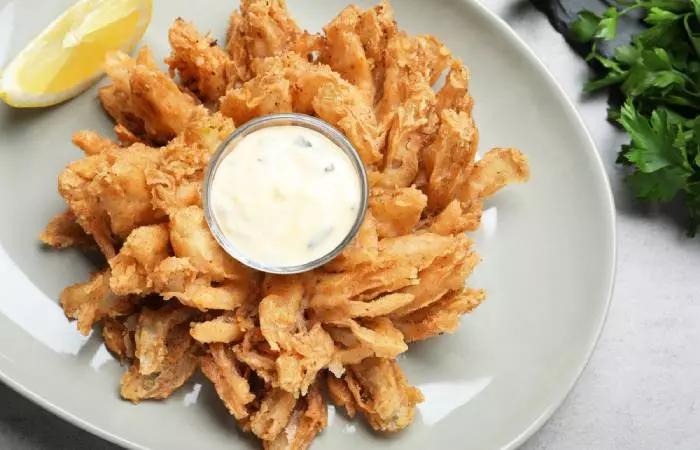
What You Need
- 1 large onion
- 1 cup whole wheat flour
- 1 tablespoon of paprika
- 1/2 tablespoon of garlic powder
- 1/2 tablespoon of smoked paprika
- 1/2 teaspoon of salt
- 1/4 teaspoon of black pepper
- 2 egg whites
- 1 cup of low-fat buttermilk
- Olive oil cooking spray
- Dipping sauce (mayonnaise or ketchup)
Directions
- Slice the onion, leaving the base intact.
- Mix whole wheat flour, paprika, garlic powder, smoked paprika, salt, and black pepper in a bowl.
- Whisk the egg whites and buttermilk in another bowl.
- Dip the onion in the wheat flour mixture and coat the petals with it thoroughly.
- Next, dip the onion in the egg-white mixture.
- Coat it with the wheat flour mixture again.
- Refrigerate the onion for 15 minutes.
- Preheat the oven to 425°F (220°C) and place a wire rack on a baking sheet.
- Spray the onion with olive oil.
- Bake for 20-25 minutes until golden.
- Serve it with a low-fat dipping sauce.
The recipes are simply mouthwatering, aren’t they? You can also use onions in your diet in various other ways.
How To Use Onions For Cooking/Eating
Onions are one of the most versatile vegetables that can be eaten both in the raw and cooked forms. They can impart a unique flavor to any recipe. They can be cooked in various ways such as boiling, sautéing, frying, or caramelizing. Given below are some of the best uses of onions.
- You can prepare a classic Italian salad by combining sliced onions with tomatoes and mozzarella cheese, tossed in olive oil.
- Chopped or sliced onions can be fried and used as a base for pasta sauces, stews, and soups. Onions can be fried in butter or margarine over medium heat for about 3 minutes until they turn crispy and golden brown. They should be removed with tongs and placed on a plate lined with paper towels.
- Chopped onions can be combined with tomatoes, avocados, and jalapeños to prepare a guacamole salsa dip. Even plain rice can be topped with green onions and sesame seeds to make it more appetizing.
- Sautéed onions can enhance the flavor of any vegetarian dish. Sautéing enhances the texture and flavor of the onions. This method involves browning the onions, which creates a rich flavor. These can be added to sautéed veggies, soups, and pasta dishes.
- Sweating involves gently cooking the onion to make it soft and sweet and reduce the sulfur content, giving it with a milder taste. These onions are added to dishes such as risottos, rice pilafs, and braised meats to impart a natural sweetness.
And if you are wondering how to avoid those annoying teary eyes when you cut onions, any of these tips might help you:
- You can place the onion in the freezer for about 5 minutes.
- Place a burning candle next to the cutting board.
- Or you can simply chew gum while cutting the onion.
- Dip the onions in cold water for about 10 minutes before cutting.
Also…
Where To Buy Onions
Pretty simple. You can head to the nearest supermarket or grocery store. That’s obvious, isn’t it? Or you can purchase onions online.
And wait, what fun would it be without some fun facts?
Any Cool Facts About Onions?
- In the Middle Ages, onions were used as a form of currency.
- Guess why sliced onions cause tears? Because sliced onions release sulfuric acid that reacts with the moisture in our eyes and causes tears.
- The world’s largest onion weighed about 18 pounds – it was grown by a British farmer named Peter Glazebrook.
- As per folklore, the thickness of an onion’s skin can predict the severity of the following winter. The thinner the skin, the milder the winter.
- New York City was once known as the big onion – as it was the kind of city where one could peel layer after layer and still not reach the core.
 Fun Fact
Fun FactTill now, we saw everything about onion benefits. But hey, this humble vegetable has some side effects too.
What Are The Side Effects Of Onions?
Here you will check out the possible onion side effects in detail.
1. Drastic Decrease In Blood Sugar Levels
Onion decreases blood sugar levels, so those with diabetes should check their blood sugar before consuming it, as it may lower their blood sugar levels too much. Also, it is a good idea to monitor the same even after consuming onions. This will keep you from overconsuming onions.
2. Gastric Burning
Although onion is used in treating several gastrointestinal disordersi Diseases like nausea, vomiting, or food poisoning that affect the digestive tract running from the mouth to the anus. , excess consumption may cause gastric irritation, vomiting, nausea, and burning. You may prevent these side effects by cooking your onions well before consumption and pairing them with foods that soothe the stomach, like yogurt. If you still experience any such conditions regularly from onion usage, it is advisable to consult your healthcare provider.
3. Skin Irritation
Some people may experience face or skin irritation and rashes on applying onion juice on the skin. So, it is advisable to test it on a small area of your skin before its application.
4. Pregnant And Nursing Women
Pregnant and nursing women should limit the amount of onion consumption as it often causes heartburn during these stages. You can have them with cooling foods like yogurt to prevent heartburn. You should also drink lots of water. Also, always consult a healthcare provider regarding your diet during pregnancy.
5. Heartburn
Uncontrolled intake of onion can lead to heartburn. It can cause adverse effects to people with heart ailments. Quick medical attention is required in such situations. So, avoid consuming a lot of onions, especially if you are prone to acid reflux or heartburn. It is also a good idea to pair them with other veggies and foods to limit their consumption and prevent the risk.
6. Bad Breath
Onion often leaves a bad breath after its consumption due to its strong aroma, which can be attributed to its high content of sulfur. After eating onions, always rinse your mouth well. You may also brush your teeth or use mouthwash to reduce bad breath.
7. Blood Pressure
Onion may reduce systolic and diastolic blood pressure. Thus, those taking medications for blood pressure should exercise caution in its consumption. If you plan to eat onions frequently, consult your doctor and monitor your blood pressure regularly to avoid excess drops.
8. Anticoagulant Property
The use of onion may inhibit blood clotting because of its anticoagulant property. Supplementing onion with other anticoagulant medications might increase the risk of bleeding and bruising. Hence, one should always consult a doctor before consuming onions if they are on anticoagulant medications.
9. Increased Sensitivity
People who are allergic to onion should not take aspirin and onion together as aspirin increases onion sensitivity. Instead, talk to your doctor for alternative treatments.
10. Increased Lithium
Onion may decrease the capability of the body to get rid of lithium. So, it is recommended to consult a doctor before taking any lithium medications while consuming onions.
Have more questions? Well…
Infographic: 8 Amazing Benefits Of Onion For Your Health
Many cuisines throughout the world incorporate onions into their recipes, and you’ll be glad to know that it’s more than just a taste enhancer. The nutritional value of onions makes them a one-stop solution for many common ailments that affect your major organs.
Check out the infographic below to learn more about the different health benefits onions offer to your vital organs.
Some thing wrong with infographic shortcode. please verify shortcode syntax
The benefits of onions can be attributed to their rich nutrients like vitamins, folate, iron, and potassium. Onions are available in different varieties, and they can be consumed raw or cooked. They may help reduce the risk of cancer, cardiovascular disease, gastric ulcers, and glaucoma. They also may lower blood sugar levels, promote digestion, and boost immunity and respiratory health. In addition, onions can also reduce the signs of aging and help treat dandruff and hair loss. The benefits of onion juice are particularly noteworthy, as it offers concentrated advantages for skin and hair care. However, overconsumption may trigger gastric burning and bad breath. Hence, practice caution and consume them in moderation.
Frequently Asked Questions
Is it safe to eat raw garlic and raw onion together?
Yes. There are numerous benefits of raw onions and raw garlic (42). So, you can consume them if you can handle the strong taste.
What part of a green onion should you use?
You can eat the shoots and stalks. Or the flowers. Or even the roots.
What are the benefits of using dried chopped onions?
You don’t have to chop them and let tears flow probably. They might also be a little cheap.
What are the benefits of onion water?
Onion water is nothing but onion juice. It improves digestion and helps treat respiratory discomfort. It is good for the skin and hair too.
Do onion skins have nutrition?
Yes. Also called onion shells, they contain a higher concentration of antioxidants.
Are chives and green onions the same?
No. They are different plants, though of the same family. Chives are smaller and more tender and are usually used raw.
Are cut (leftover) onions dangerous?
No, they aren’t.
What are spring onions?
They are tender onion bulbs that taste great and are nutritious. They have similar benefits as that of onions.
How many onions a day are too much?
There is no specific count as such. But yes, eating in excess is obviously not good. One to two onions a day should do fine. Also, eating raw onions daily can have significant benefits – most of which we have discussed in this post.
Does onion burn belly fat?
Yes, studies indicate that onions can reduce body fat percentage and overall body weight. Additionally, it contains soluble fiber which helps keep the stomach fuller for a longer period of time which may help in losing belly fat (43).
Illustration: Benefits Of Onions, Nutritional Value, And Side Effects
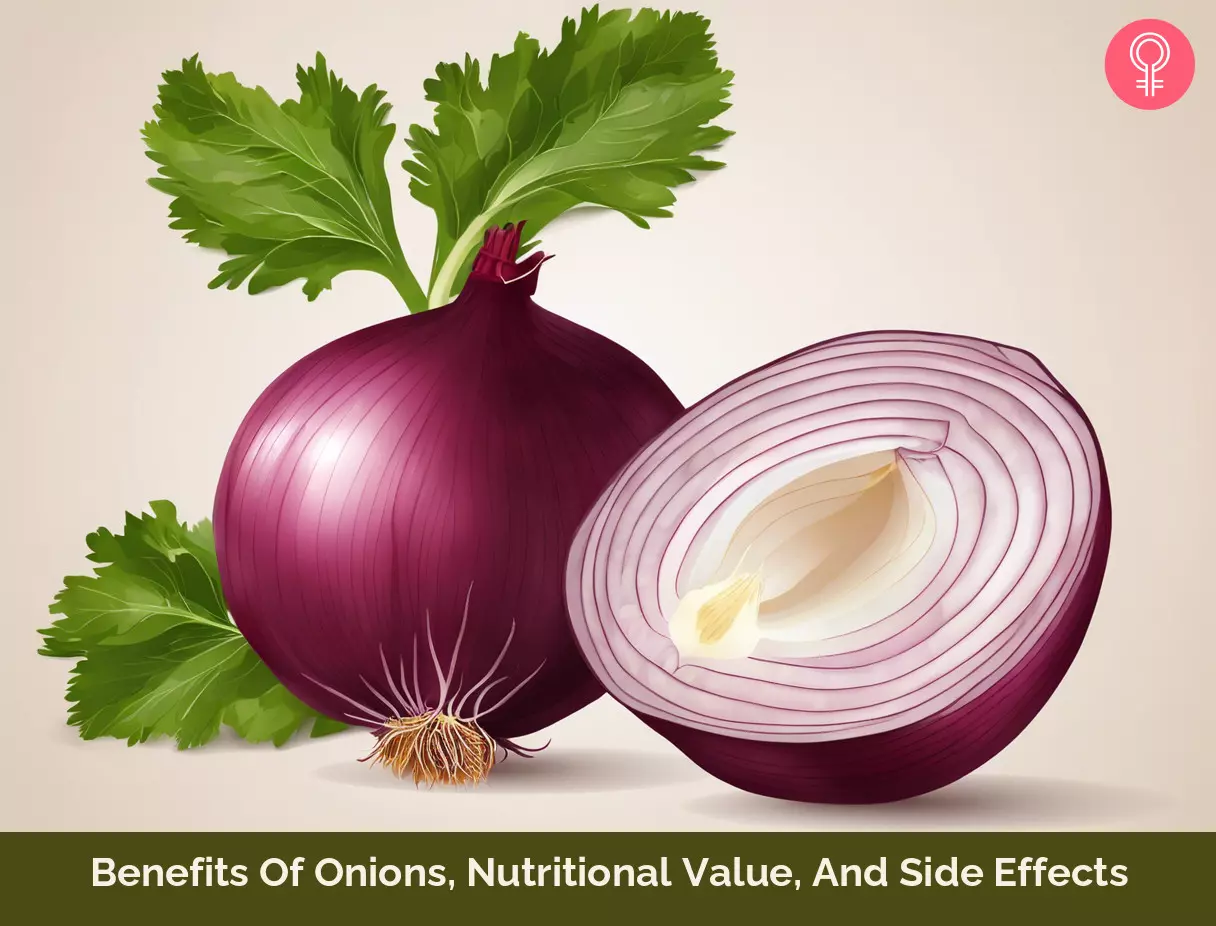
Image: Stable Diffusion/StyleCraze Design Team
Discover the hidden secret to shedding pounds naturally! This video has information about the surprising health benefits of onions and how they can become your ultimate weight loss ally. Check it out!
Personal Experience: Source
StyleCraze's articles are interwoven with authentic personal narratives that provide depth and resonance to our content. Below are the sources of the personal accounts referenced in this article.
i. I tried ONION JUICE on my hair FOR 7 DAYS & THIS HAPPENED! *before & after results*https://www.youtube.com/watch?v=WLVZ6z4kAp4
References
Articles on StyleCraze are backed by verified information from peer-reviewed and academic research papers, reputed organizations, research institutions, and medical associations to ensure accuracy and relevance. Read our editorial policy to learn more.
- “The Mechanism in Gastric Cancer Chemoprevention by Allicin” Anti-Cancer Agents in Medicinal Chemistry, US National Library of Medicine, National Institutes of Health.
- “Antioxidative compounds from the outer scales of onion”. Gifu University, Japan. 2005 October.
- “Antiproliferative activity of Ontario grown onions against colorectal adenocarcinoma cells”. University of Guelph, Canada. June 2017.
- “Garlic and onions: Their cancer prevention properties”, National Library of Medicine
- “The Impact of Flavonols on Cardiovascular Risk”, National Library of Medicine
- “Organosulfur compounds and cardiovascular disease”. National Council of Research, Argentina. 2010 October.
- “Overviews of Biological Importance of Quercetin: A Bioactive Flavonoid” Pharmacognosy Review, US National Library of Medicine, National Institutes of Health.
- “Quercetin reduces systolic blood pressure…”. Cambridge University Press. 2009 October.
- “Effect of essential oil of onion…”. Ravindra Nath Tagore Medical College, India. 1976 July.
- “Hypoglycemic and Hypolipidaemic Effect of Allium Cepa…“. International Journal of Scientific and Engineering Research. January 2015.
- “Polyphenols and glycemic control”. University of South Australia. 2016 January.
- “Effect of the prebiotic oligofructose on relapse of…”. Derriford Hospital, United Kingdom. 2005 May.
- ““Fiber and Prebiotics: Mechanisms and Health Benefits “. Nutrients. 2013 April.
- “Onion dehydration…”. Indian Institute of Technology, India. 2011 April.
- “Dietary organosulfur compounds: Emerging players in the regulation of bone homeostasis by plant-derived molecules, National Library Of Medicine”
- “The association between onion consumption and bone density…”. Medical University of South Carolina, USA. 2009 July.
- “Quercetin, Inflammation and Immunity”, National Library Of Medicine.
- “Quercetin-Induced Enhancement of Nasal Epithelial Cells’ Ability to Produce Clara Cell 10-kD Protein In Vitro and In Vivo”, National Library Of Medicine.
- “Anti-bacterial action of onion…”. Yongin University, Republic of Korea. 1997 September.
- “Antibiotics in onions and garlic”. US National Library of Medicine National Institutes of Health. 1945 July.
- “Complementary treatment of the common cold and flu with medicinal plants…”. University of Tartu, Estonia. 2013 March.
- “Parents are swearing by an onion earache cure”. Business Insider. 2015 October.
- “Treatment for acute middle ear infections”. US National Library of Medicine. 2016 December.
- “Respiratory and allergic diseases…”. State University of New York, USA. 2002 June.
- “Effects of Allium cepa and Its Constituents…”, National Library Of Medicine.
- “The Impact of Diet and Lifestyle on Gut Microbiota and Human Health”, National Library Of Medicine.
- “Effects of onion juice on the normal flora of eyelids…”. Shiraz University of Medical Sciences, Iran. 2014 May.
- “Effect of onion extract on corneal haze suppression…”. Seoul National University, Korea. 2016 March.
- “Beneficial Effects of Vitamin C in Maintaining Optimal Oral Health” Frontiers in Nutrition. 2025 Jan.
- “Halitosis:From diagnosis to management.
- “In vitro antibacterial activity of onion…”. University of Health Sciences, Pakistan.
- “A Comparative Study of Rutin and Rutin Glycoside: Antioxidant Activity, Anti-Inflammatory Effect, Effect on Platelet Aggregation and Blood Coagulation”, National Library Of Medicine.
- “Traditional herbal remedies used in the management of sexual impotence and…“. Makerere University, Uganda. 2005 March.
- “Antioxidative activity and ameliorative effects of memory…“. Hokkaido Tokai University, Japan. 2006.
- “Hypocholesterolemic efficacy of quercetin rich onion…“. Chung Shan Medical University Hospital, Taiwan. 2015 December.
- “Consumption of onion juce modulates…“. Chung Shan Medical University Hospital, Taiwan. 2016 February.
- “Lowering effects of onion intake on oxidative stress…“. The University of Tokushima, Japan. 2007 March.
- “Garlic and onion attenuates vascular inflammation…“. Universidad Nacional de Cuyo, Argentina. 2011 August.
- “Garlic and onion attenuates vascular inflammation and oxidative stress in fructose-fed rats“, National Library Of Medicine.
- “Plants Consumption and Liver Health“, National Library Of Medicine.
- “Onion juice…“. Wiley Online Library. 2002 June.
- “Potential Health Benefit of Garlic…”. National Library for Medicine. 2025 July.
- “Onion peel extract reduces the percentage of body fat…”. National Library for Medicine. 2016 April.
Read full bio of Alexandra Dusenberry
- Amber Dixon, RDN, has over 30 years of experience in the healthcare industry. She is the CEO of Elderly Assist Inc and is a passionate advocate for promoting healthy aging and empowering older adults to live their best lives. She received her bachelor’s degree in Dietetics from the University of Chicago and completed her dietetic internship at the University of California, San Francisco.
 Amber Dixon, RDN, has over 30 years of experience in the healthcare industry. She is the CEO of Elderly Assist Inc and is a passionate advocate for promoting healthy aging and empowering older adults to live their best lives. She received her bachelor’s degree in Dietetics from the University of Chicago and completed her dietetic internship at the University of California, San Francisco.
Amber Dixon, RDN, has over 30 years of experience in the healthcare industry. She is the CEO of Elderly Assist Inc and is a passionate advocate for promoting healthy aging and empowering older adults to live their best lives. She received her bachelor’s degree in Dietetics from the University of Chicago and completed her dietetic internship at the University of California, San Francisco. - Blanca Garcia, RDN, has 8 years of experience as a nutrition specialist. She graduated from California State University of Los Angeles in 2011 and interned at the University of Puerto Rico Medical Science Campus in 2012. She services clients in both English and Spanish.
 Blanca Garcia, RDN, has 8 years of experience as a nutrition specialist. She graduated from California State University of Los Angeles in 2011 and interned at the University of Puerto Rico Medical Science Campus in 2012. She services clients in both English and Spanish.
Blanca Garcia, RDN, has 8 years of experience as a nutrition specialist. She graduated from California State University of Los Angeles in 2011 and interned at the University of Puerto Rico Medical Science Campus in 2012. She services clients in both English and Spanish. - Yelena Wheeler, MPH, RDN, has a decade of experience in clinical nutrition, chronic disease management, dialysis, acute care, NICU, bariatrics, diabetes education, public health program development, and food service management. She has worked within many prominent hospital systems in Los Angeles and Central California. She earned her master's degree from California State University, Los Angeles and is currently Clinical Nutrition Manager at Glendale Adventist Medical Center Inc.
 Yelena Wheeler, MPH, RDN, has a decade of experience in clinical nutrition, chronic disease management, dialysis, acute care, NICU, bariatrics, diabetes education, public health program development, and food service management. She has worked within many prominent hospital systems in Los Angeles and Central California. She earned her master's degree from California State University, Los Angeles and is currently Clinical Nutrition Manager at Glendale Adventist Medical Center Inc.
Yelena Wheeler, MPH, RDN, has a decade of experience in clinical nutrition, chronic disease management, dialysis, acute care, NICU, bariatrics, diabetes education, public health program development, and food service management. She has worked within many prominent hospital systems in Los Angeles and Central California. She earned her master's degree from California State University, Los Angeles and is currently Clinical Nutrition Manager at Glendale Adventist Medical Center Inc. - Barbara Kovalenko is a nutritional consultant with 4 years of experience in nutrition and mindful eating coaching. She earned her bachelor's degree in nutrition from Bogomolets National Medical University, Ukraine and master's degree from Boston University, USA.
 Barbara Kovalenko is a nutritional consultant with 4 years of experience in nutrition and mindful eating coaching. She earned her bachelor's degree in nutrition from Bogomolets National Medical University, Ukraine and master's degree from Boston University, USA.
Barbara Kovalenko is a nutritional consultant with 4 years of experience in nutrition and mindful eating coaching. She earned her bachelor's degree in nutrition from Bogomolets National Medical University, Ukraine and master's degree from Boston University, USA. - Valeria Dolbel is a Certified Holistic Nutritionist who specializes in plant-based nutrition and holistic gut, hormone, and skin health. She also has an advanced diploma in anti-aging nutrition from the Academy of Beauty Nutrition and a certificate in beauty nutrition.
 Valeria Dolbel is a Certified Holistic Nutritionist who specializes in plant-based nutrition and holistic gut, hormone, and skin health. She also has an advanced diploma in anti-aging nutrition from the Academy of Beauty Nutrition and a certificate in beauty nutrition.
Valeria Dolbel is a Certified Holistic Nutritionist who specializes in plant-based nutrition and holistic gut, hormone, and skin health. She also has an advanced diploma in anti-aging nutrition from the Academy of Beauty Nutrition and a certificate in beauty nutrition.
Read full bio of Ravi Teja Tadimalla
Read full bio of Arshiya Syeda
Read full bio of Sindhu Koganti







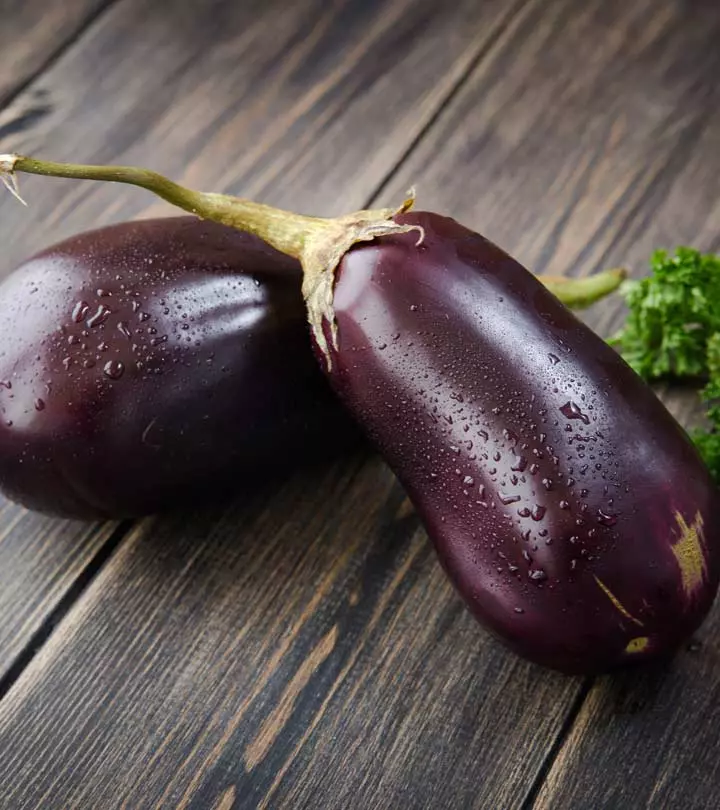
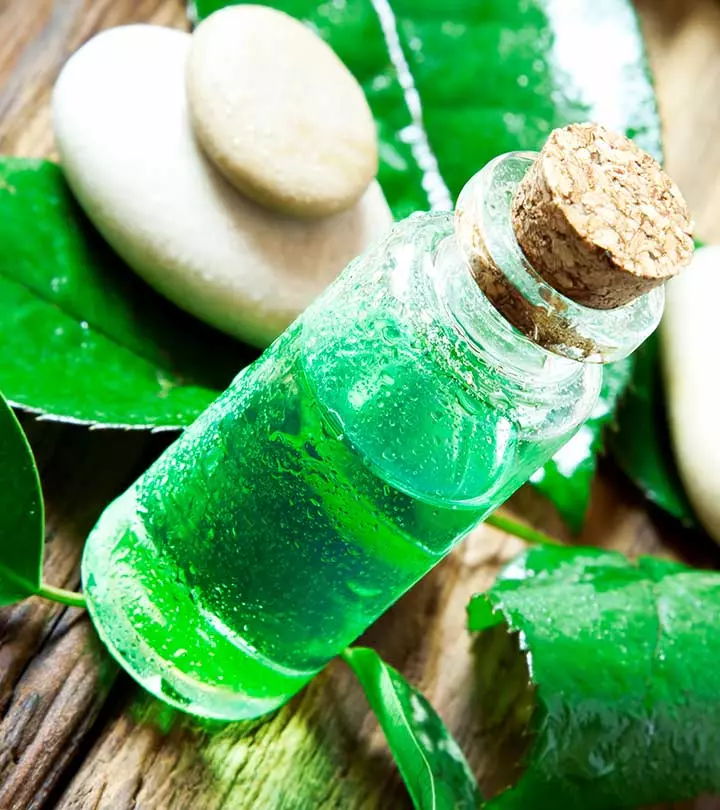
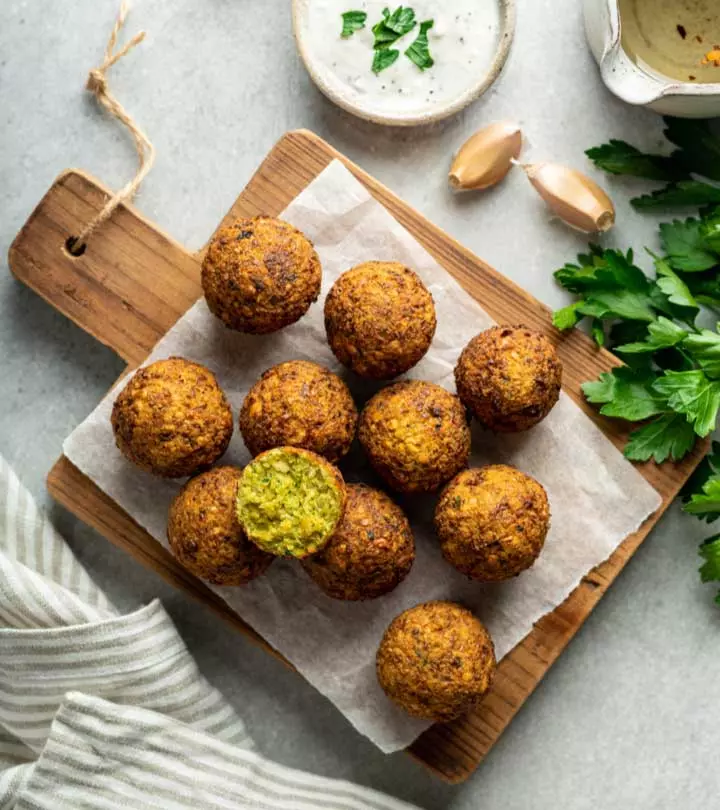
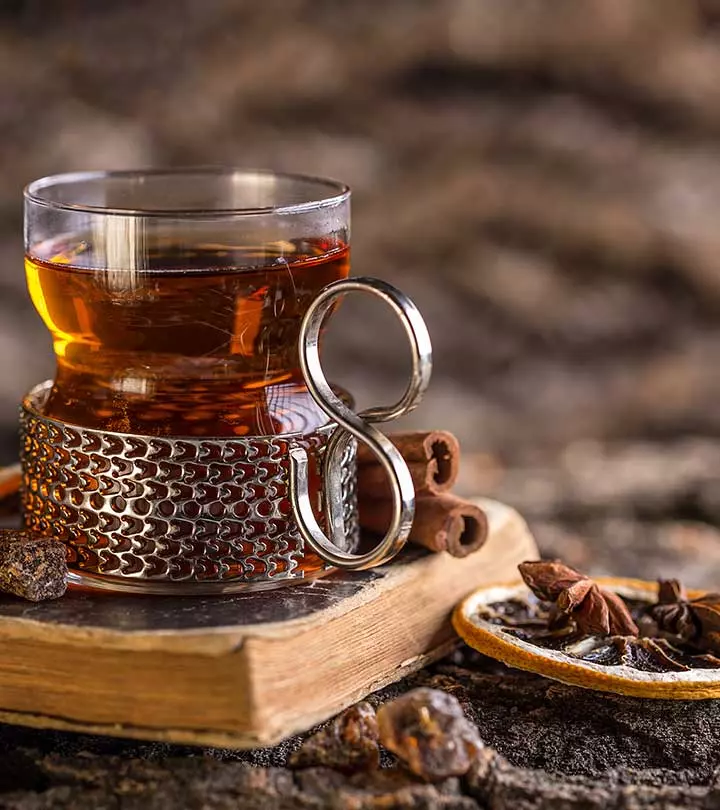
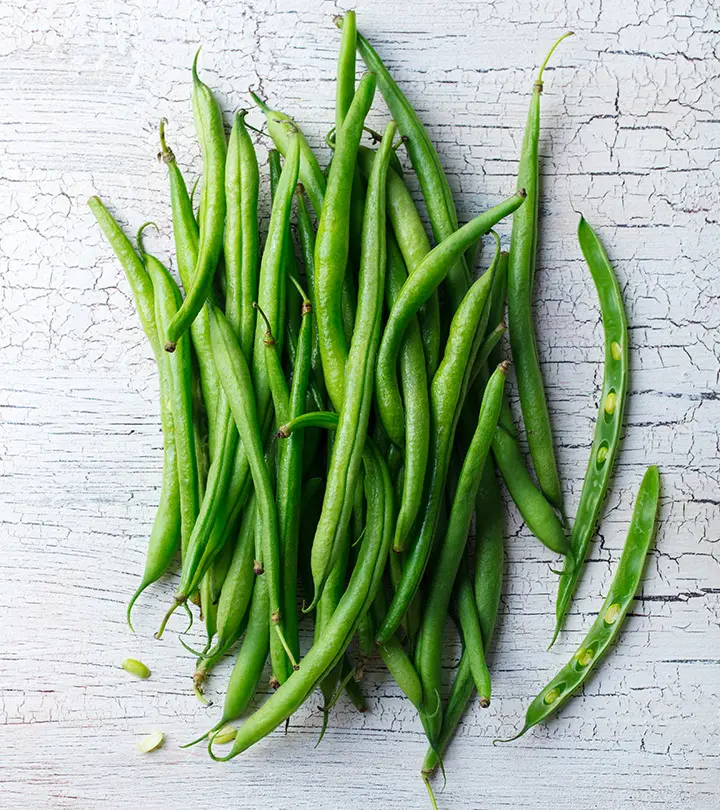

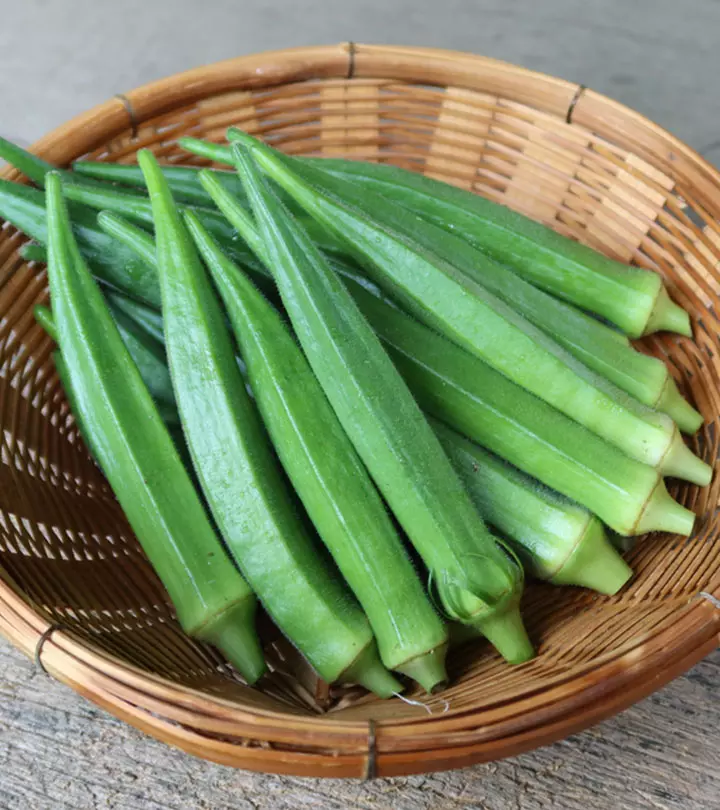
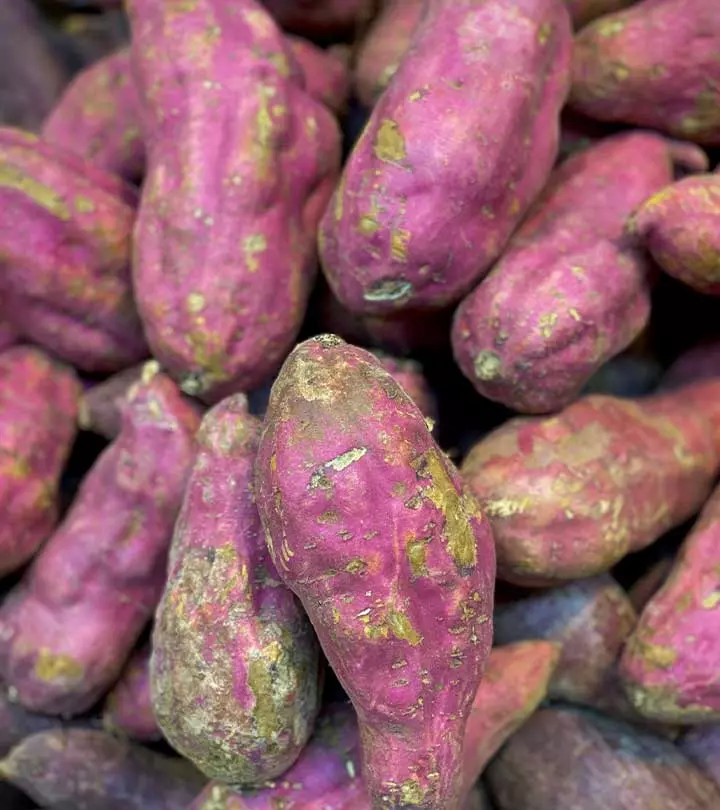

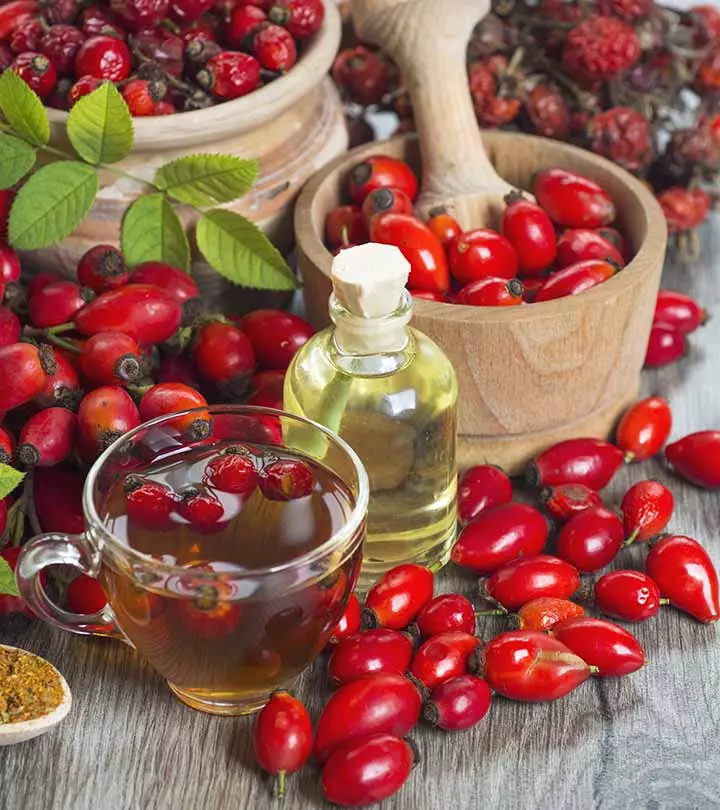
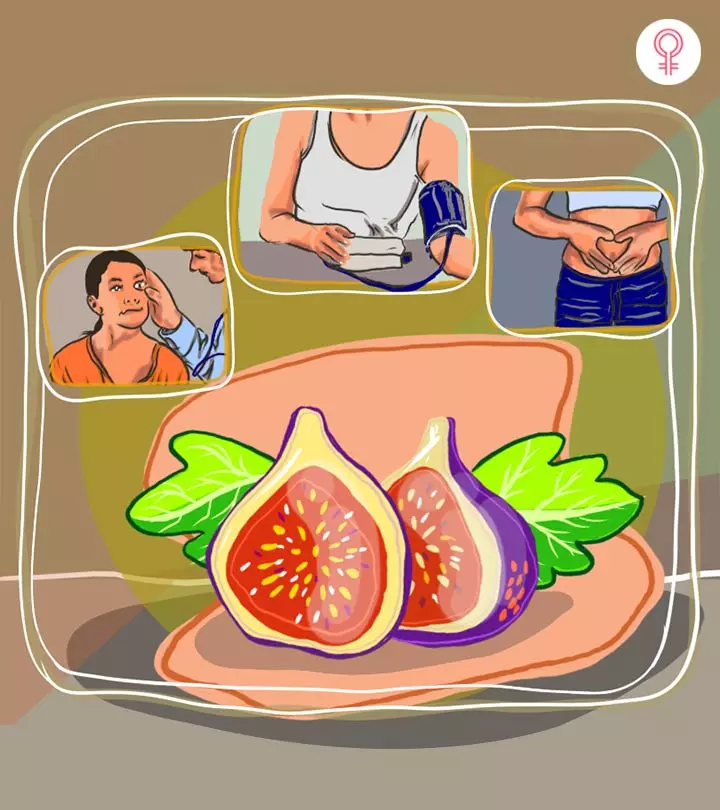
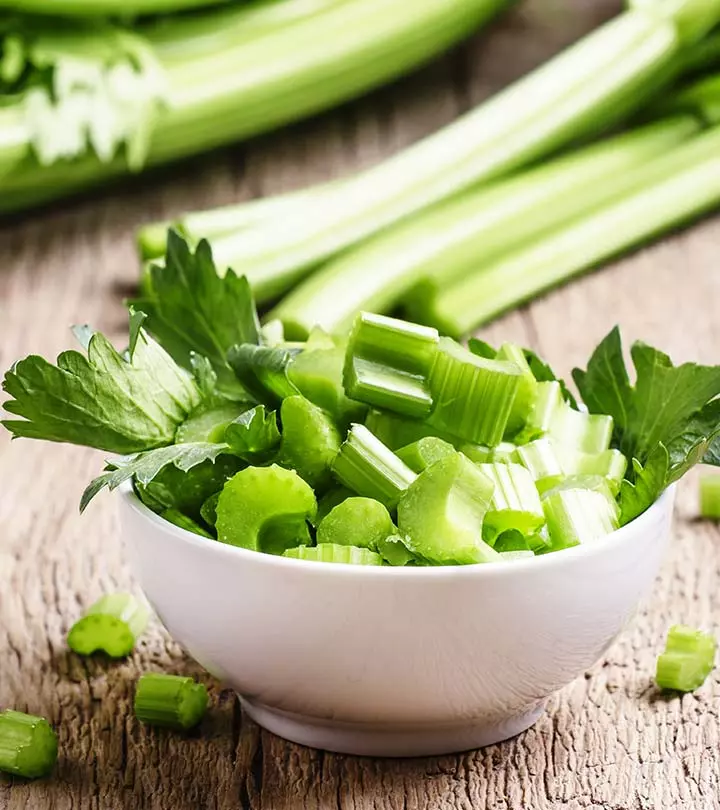
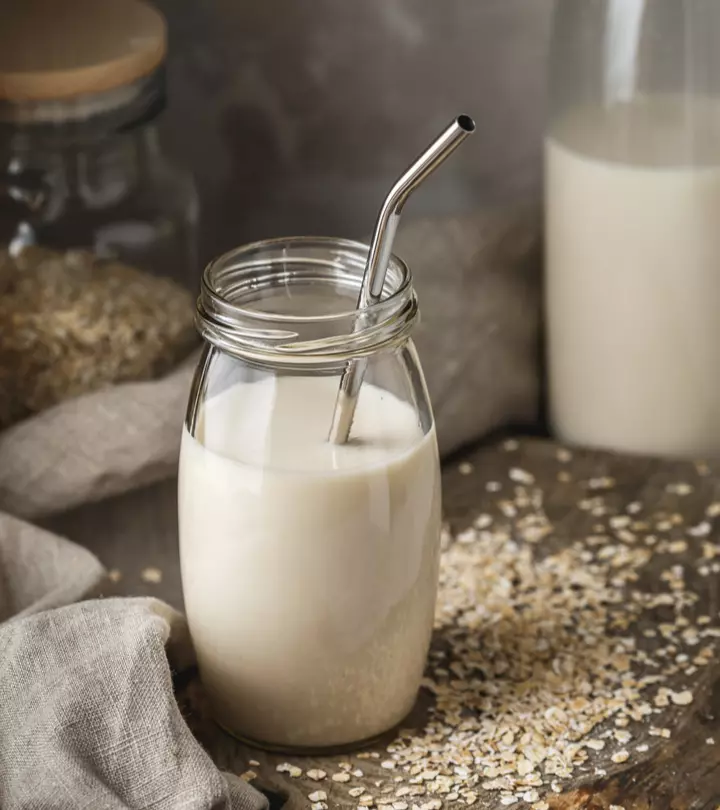
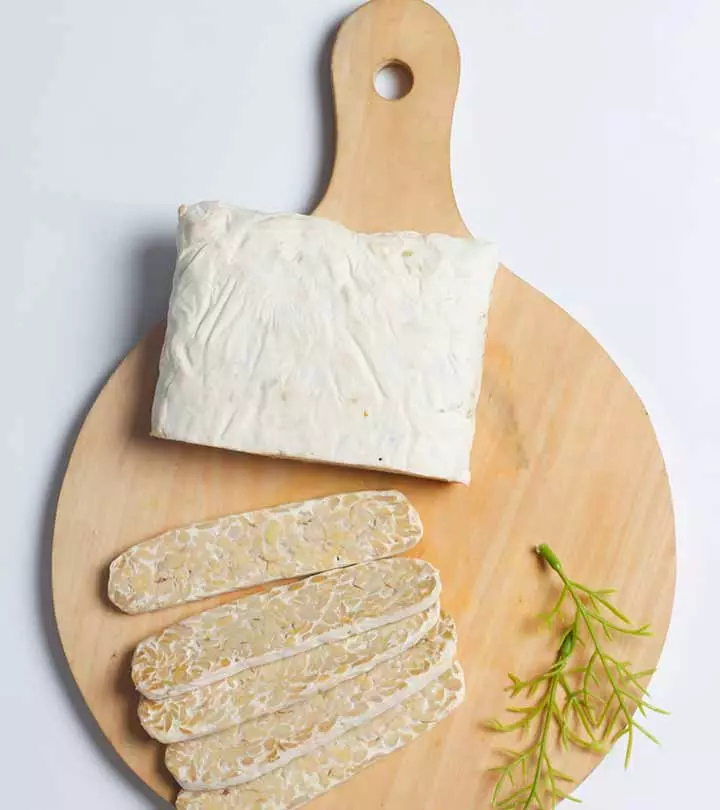


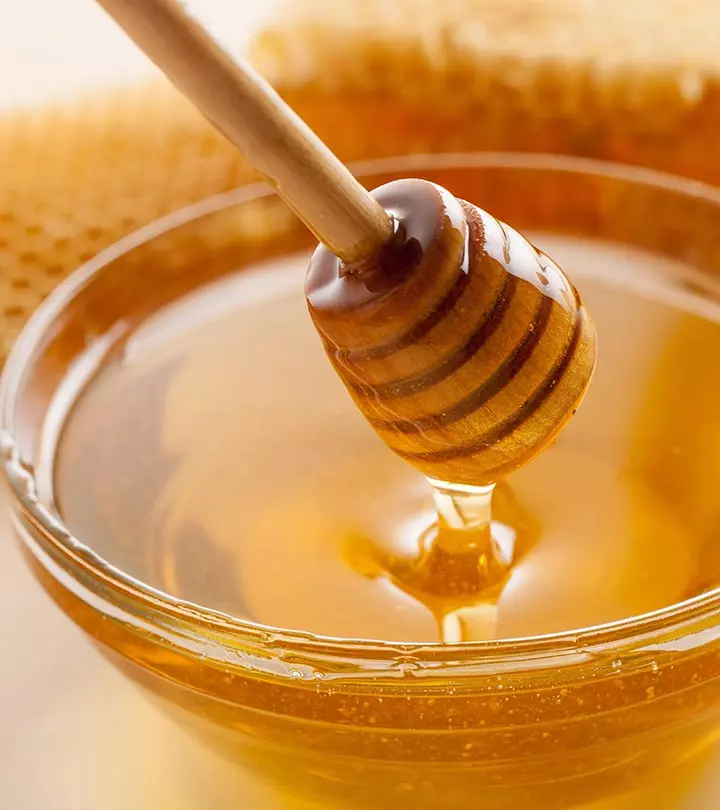

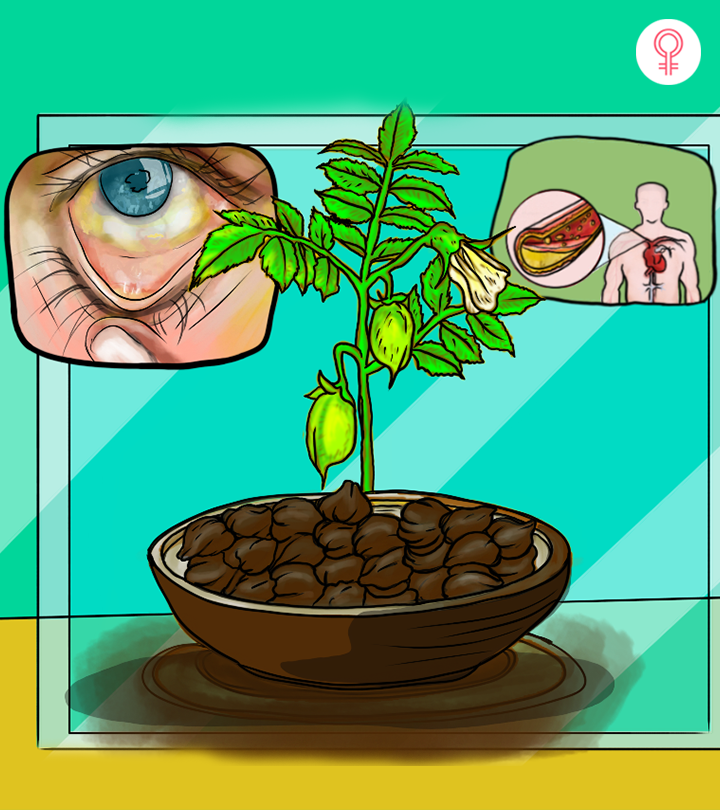
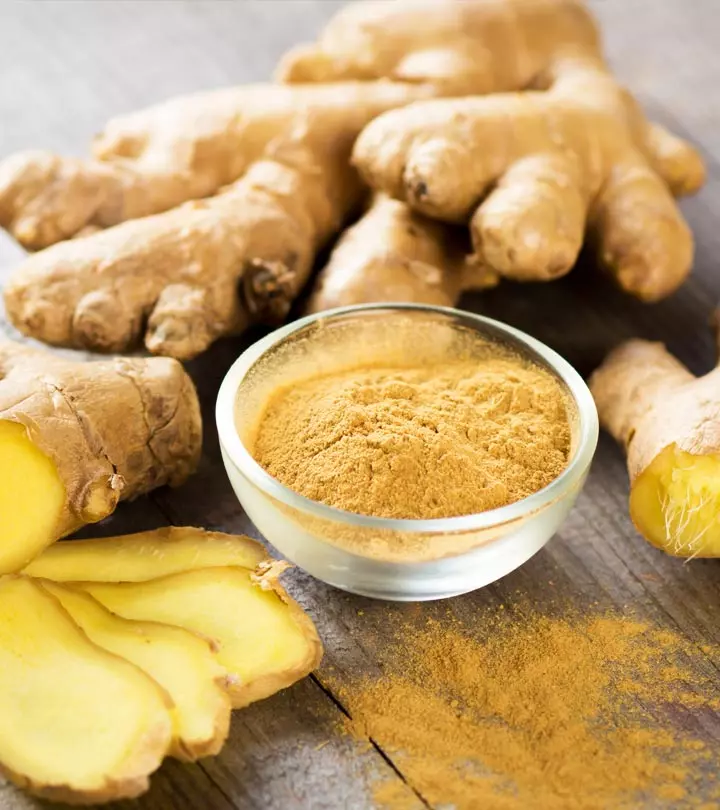
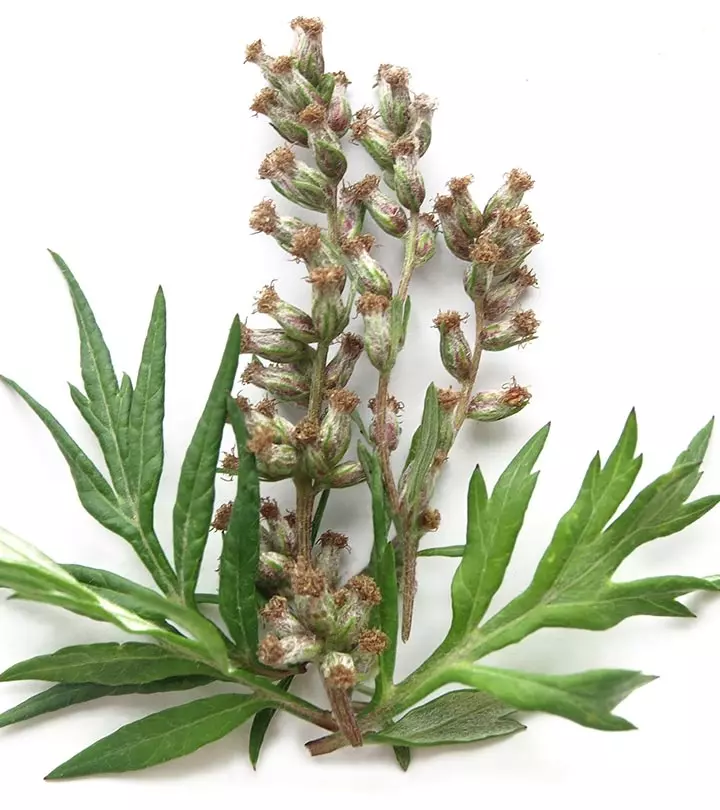
Community Experiences
Join the conversation and become a part of our empowering community! Share your stories, experiences, and insights to connect with other beauty, lifestyle, and health enthusiasts.